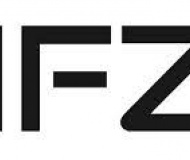Decision of the European Union on overlaying the offshore scheme popular among Russian businessmen
News:
Date added: 01.03.2015The European Union adopted the decision to eliminate offshore schemes by which Russian businessmen can significantly reduce taxes and at the same time take advantage of the jurisdiction of the Netherlands, Luxembourg and other countries which laws allow them to be used for the aforementioned purposes. Now, entrepreneurs will have to choose between laws that are loyal to business and maximum reduction in taxes.
These schemes became widespread in 1990 after the adoption by the European Council of the so-called "Directive on parent and subsidiary companies", which establishes a general system for taxing dividends paid by business to parent companies and subsidiaries. The directive was adopted with the main objective of eliminating double taxation of profits, which was distributed to the accounts of subsidiaries and parent companies located territorially in different countries of the European Union. Subsidiaries with the document were exempt from taxes on dividends paid by the parent enterprises.
Briefly about the "schemes" and the principles of their work
These schemes can be represented as follows: a citizen of Russia, i.e. the beneficial owner, is the owner of business in Russia through a company located in one of the EU countries, which he prefers for various reasons, e.g. Cyprus, where, as you know, the tax rate on income is quite attractive. For example, in the Netherlands, since the USSR, an agreement has been in place to protect investments, through which the owner has all the necessary legislative levers to protect his property in foreign courts from its illegal confiscation in Russia. Also, an entrepreneur may be interested in Latvia in order to obtain a residence permit or Luxembourg, which is a powerful financial center with a well-developed mechanism for accompanying various financial transactions. If an enterprise in any of the listed countries is owned by an offshore structure, then when paying dividends from the Netherlands, Lithuania or Luxembourg, a 15 percent tax on dividends will be directly paid to the offshore company.
To minimize taxation, some financial advisers suggest that companies located in Lithuania, Luxembourg or the Netherlands should set up a company in Cyprus, where, as already mentioned, taxes are not withheld when paying to offshore. In this case, dividends transferred from these jurisdictions to Cyprus will not be taxed on the basis of the "Directive" and, in the same line, the dividends are transferred without taxes from Cyprus, according to the specifics of local legislation. And since Cyprus does not have contractual obligations with Luxembourg and the Netherlands to avoid double taxation, from the moment of adoption of the above directive it was possible to reduce the tax on dividends from Luxembourg’s or the Netherlands’s sources from 15% to 0%. At the same time, the recipient would avoid imposing any serious demands. According to this scheme, a large number of companies located in Cyprus and owned by Russians exist there without an office, without employees, but only on paper.
Not the first step...
As a means of struggling against offshores, the EU in 1977 adopted the Directive on tax cooperation on indirect taxes. According to this directive, the tax authorities were able to provide each other with the necessary tax information on certain types of taxes. After the relevant amendments were made to this document in 2007, the exchange of information between various tax services began to be made for all types of taxes. Also, 1997 was marked by the adoption of the "Code on taxation of entrepreneurial activities in the Member States of the European Union", which clearly stipulated the degree of conscientious relations of one EU country with other countries in the field of taxation. In 1998, a special expert group was established acting at the interstate level, which was responsible for conducting revision of all the special tax regimes of the EU countries during the whole year. After that, in 1999, according to the results of the revision, a report was published, as a result of which about two hundred tax special regimes ceased to exist.
The next milestone in the fight against offshore was the law adopted in Cyprus in 2002 (on the refusal of offshore status by this country). Also, special preferential tax regime that existed since 1978 was liquidated in Cyprus. After that, the income tax rate increased from 4.5% to 10%. But after the entry of Cyprus into the European Union in 2004, the European Council cancels this possibility and obliges all EU countries to change their tax laws before December 31, 2015. The EU countries eventually lose the right to grant tax benefits to companies which actual economic activities are not being conducted in the EU countries.
If earlier there were provisions in the directive about the fact that the EU countries had the right to apply their own "anti-deviation" rules, now it is the obligation of the EU countries to amend their national legislation before the end of 2015. And only those companies that carry out actual economic activity will have the right to a tax-free transfer of income. In this regard, for business owners who are willing to manage their assets in the countries located in the EU from Cyprus, it will be necessary to organize actual offices of their companies on the island with the presence of official employees, which, naturally, entails additional costs. Moreover, the functional goals of the established companies must necessarily be non-tax purposes.
What's next?
All of the above changes will not affect Russia's taxpayers directly, but will have a direct impact on the work of their holdings in Europe, the Netherlands, Luxembourg and especially in Cyprus. There is also a similar agreement between the European Union and Switzerland on dividend benefits and, according to some financial experts, it will also be subject to changes and adjustments, since this necessarily applies to all EU countries. At the same time, all foreign holding structures of Russian companies will be affected. Countries could have used their measures to combat tax evasion earlier, which did not contradict the current directive. The Netherlands has worked effectively in this direction since 2012, although at the moment such structure as the Netherlands - Cyprus is already quite outdated. Also, the possibility of additional taxation is not excluded, if after the entry into force of amended tax laws, it turns out that the structures of Russian holdings in Europe are artificial.
The practice of preparing preliminary conclusions from tax services is likely to be toughened, and, naturally, the risks of performing operations without their clearance and registration will increase. Financial analysts forecast the simplification of holding structures and the removal of superstructures, since taxpayers are unlikely to massively engage in imitating the real work of their companies. Another bad news for Russian businessmen working with offshore schemes is that this year the domestic law aimed at establishing control over the activities of foreign companies began to operate. The purpose of this law is to disclose the beneficial owners to the tax authorities to force them to pay tax on offshore companies at a Russian tax rate of 13%. Complaints about the severity of this document from Russian businessmen are already in place.

















